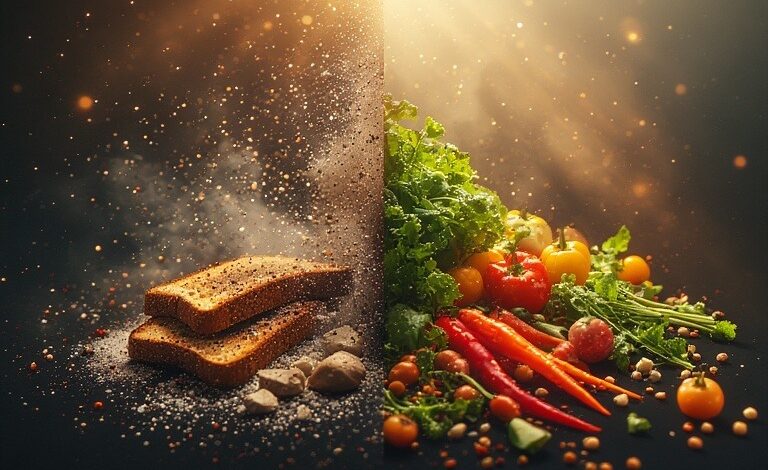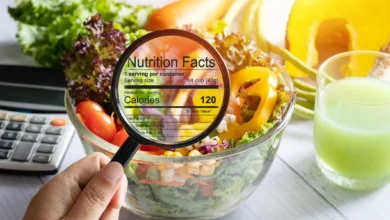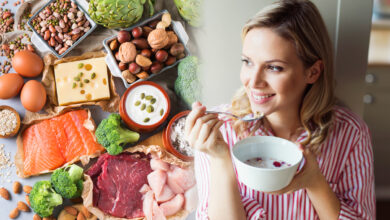From Kitchen Myths to Facts: Secrets That Change the Way You Cook!

Cooking is a beautiful mix of science, culture, and tradition. But let’s be honest—our kitchens are also full of myths passed down for generations. Some of these old beliefs add charm, while others actually slow us down or even harm our meals. With modern cooking trends, gadgets, and food science on the rise, it’s time to separate fact from fiction and discover the secrets that can truly change the way we cook.
🔥 Common Kitchen Myths We’ve All Heard
From family advice to viral internet hacks, myths often shape our cooking habits. But are they really true? Let’s review a few famous ones:
- “Adding oil to pasta water prevents sticking” 🍝
Myth! Oil floats on water and never touches the pasta. The real trick is to stir the pasta in the first few minutes. - “Searing meat locks in juices” 🥩
Not true. Searing creates flavor through caramelization but does not “seal” juices inside. - “Microwaves destroy nutrients” ⚡
False. In fact, microwaving preserves more nutrients than boiling since it cooks food faster with less water.
These myths, though widely believed, often mislead home chefs.
⚖️ Kitchen Myths vs. Modern Facts
When comparing traditional beliefs with scientific cooking methods, the differences are clear.
- Myths usually come from cultural habits or incomplete knowledge. They can add charm but may not be efficient.
- Facts are backed by science, giving us techniques that actually improve flavor, nutrition, and convenience.
👉 Example: “Salt delays boiling water.” Myth! Adding salt slightly raises boiling temperature but doesn’t delay cooking significantly. The fact is salt is added for flavor, not speed.
By shifting to fact-based cooking, home chefs save time and achieve better results.
💡 Secrets That Really Work in the Kitchen
Now that we’ve busted myths, here are proven tricks that can transform your cooking:
- Rest Your Meat 🥩: Let cooked meat rest before cutting—this redistributes juices and enhances flavor.
- Use Sharp Knives 🔪: Dull knives not only slow cooking but also increase the risk of accidents.
- Salt Early 🧂: Seasoning proteins in advance helps flavors absorb deeply.
- Cook Pasta in Less Water 🍲: Modern chefs recommend using just enough water and stirring often—saves time and energy.
- Chill Dough Before Baking 🍪: A science-backed hack for perfect cookies and pie crusts.
These small changes create big improvements in everyday cooking.
📈 Cooking Trends 2025: Facts Over Myths
Modern food culture is all about evidence-based cooking. Here’s what’s trending now:
- Smart Kitchen Gadgets: Precision cookers, smart thermometers, and air fryers make cooking fact-driven.
- Science-Backed Recipes: Platforms like YouTube and TikTok share myth-busting experiments for home chefs.
- Sustainable Cooking: Facts about reducing waste (like reusing vegetable scraps for stock) are reshaping kitchen habits.
- Fusion Cooking: Chefs mix cultures but rely on proven science for consistent results.
This shows how facts are replacing myths as the foundation of modern kitchens.
✅ Benefits of Cooking with Facts
- Saves time and energy
- Improves food safety and nutrition
- Delivers consistent flavors
- Reduces waste and saves money
- Makes home chefs more confident and creative
❌ Why Myths Still Stick Around
- Cultural traditions passed down generations
- Viral internet “hacks” that look cool but lack science
- Lack of awareness about modern food science
- Emotional attachment—sometimes myths feel comforting
👉 Example: Some still believe washing chicken removes bacteria, but the fact is it spreads contamination—cooking kills bacteria, not water.
🌟 Final Verdict: Myth-Free Cooking = Smarter Cooking
Kitchen myths are fun stories, but they shouldn’t control how we cook. By relying on science-backed techniques, home chefs save time, reduce stress, and create meals with better taste and nutrition.
The secret is balance—embrace traditions for cultural value but adapt facts for efficiency and flavor. After all, cooking is not just about feeding the body, it’s about enjoying the process and creating memories.
💡 Pro-Tip for Every Home Chef
- Follow trusted cooking experts instead of random viral hacks.
- Don’t be afraid to experiment and test myths yourself.
- Use smart tools like thermometers for accuracy.
- Remember: Cooking is art + science—know the facts, then add your flavor!
🍳 In the end, myths may add stories to our kitchens, but facts add results. And that’s what makes every home chef stronger, smarter, and more creative.




